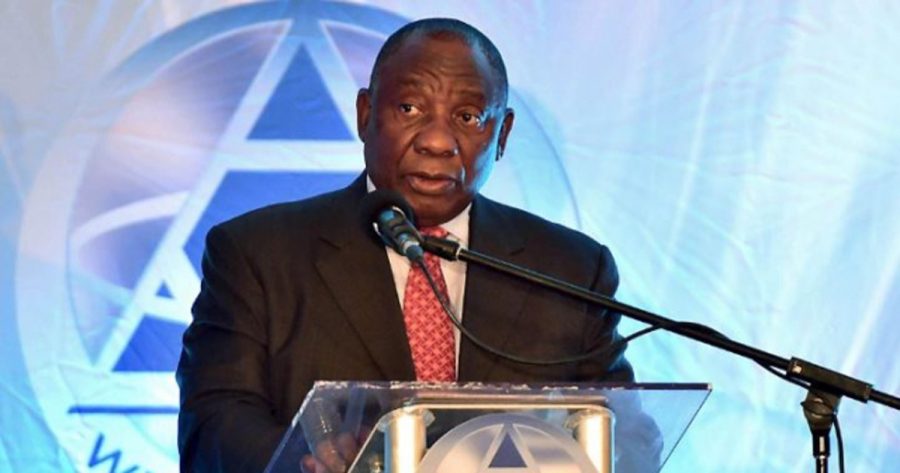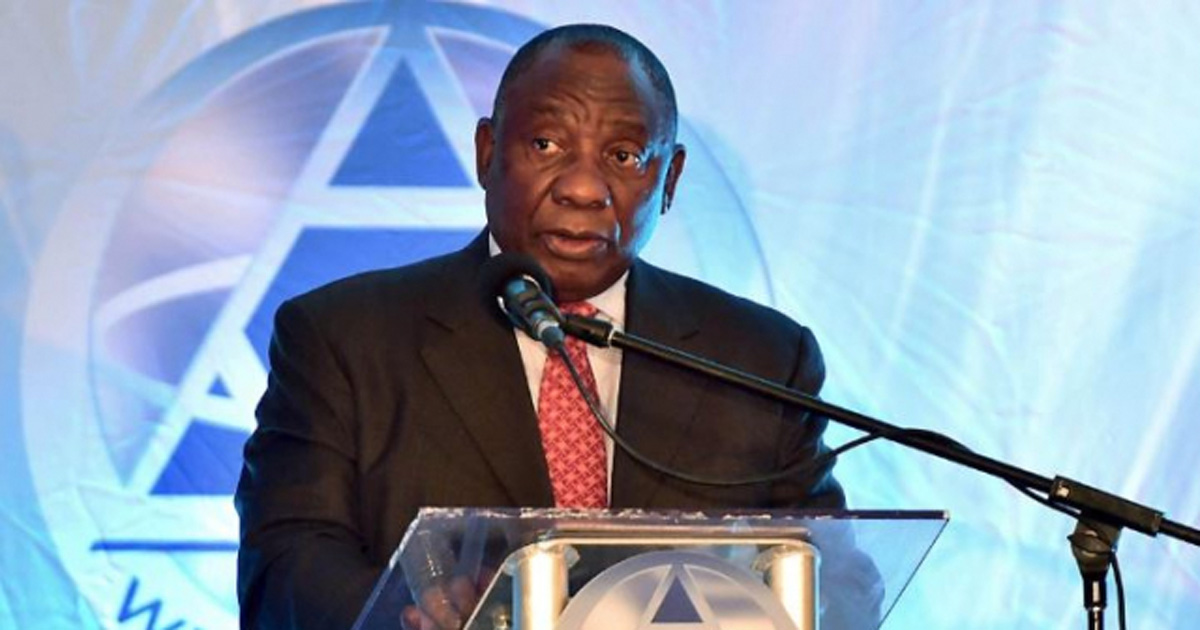
President Ramaphosa to the Afrikanerbond: “Land Shall Be Shared”
President Cyril Ramaphosa told congregants at the centenary celebrations of the Afrikanerbond that land needs to be shared in order to reduce poverty and unlock its economic value to benefit all South Africans. The President on Thursday night said the Afrikanerbond should not see the acceleration of land reform as a threat but as an […]

President Cyril Ramaphosa told congregants at the centenary celebrations of the Afrikanerbond that land needs to be shared in order to reduce poverty and unlock its economic value to benefit all South Africans.

The President on Thursday night said the Afrikanerbond should not see the acceleration of land reform as a threat but as an opportunity to build a more equitable society.
He said this when he addressed the 100th anniversary of the Afrikanerbond at the Rhebokskloof wine farm in Paarl in the Western Cape.
He said government’s land reform programme, particularly the resolution for land expropriation without compensation, provides the country with an opportunity to move together with purpose and determination to address one of the most contentious issues in the country’s history.
“I want to emphasise this point, that the land shall be shared.
“The land should never have been and will not be reserved for one group of South Africans.
“Our aim must be to ensure that all those who work the land – and who want to work the land – should be equally able to have such land.
“By the same measure, all those who need land, whether to build a house or to run a business, should be equally able to have title to land in well-located parts of our towns and cities,” he said.
The Afrikanerbond’s role in SA’s difficult past
Formerly known as the Afrikaner Broederbond, the organisation was formed in Malvern in Johannesburg on 5 June 1918 as a result of the subjugation of the Afrikaner people by the British — the pain and resentment caused by the destruction of Boer farms and the imprisonment in concentration camps of Boer women and children.
The Afrikaner Broederbond was born out of the suppression of Afrikaans as a language and the frustration of the economic and political aspirations of the citizens of the former Boer republics. They went on to become a political and economic force in South Africa, and later became central to the suppression of the majority of the population – black, coloured and Indian people – by denying them the same rights and freedom that the Brits denied them.
President Ramaphosa said this was historic reality that must be acknowledged and reflected upon and history that cannot be denied.
He said, however, that the organisation that once oppressed former President Nelson Mandela and struggle stalwart Albertina Sisulu, whose centenaries are being commemorated this year, has since changed and goes by a different name.
He said the Afrikanerbond’s credo reflects a desire to build an inclusive, just and truly democratic society.
“It was a government led by prominent members of the Broederbond who imprisoned Nelson Mandela and banned, detained and harassed Albertina Sisulu.
“And it was against a government led by members of the Broederbond that Nelson Mandela, Albertina Sisulu and others mobilised a powerful movement of defiance and resistance.
“It is therefore significant that it was the same Broederbond that began in the 1980s to cast doubt on the sustainability and even the morality of the system of apartheid.
“It was the same Broederbond that was behind a process of reform in the National Party and in sections of white society that contributed to the release of Mandela, the unbanning of liberation movements and the negotiated transition to democracy.
“It was the same Broederbond that would reconcile itself to the new democratic dispensation and would embrace the values and principles contained in our new Constitution,” President Ramaphosa said.
Building a united South Africa
By restricting the ownership and use of land to a small minority over many decades, the apartheid government made sure that the country would never realise the full potential of this valuable resource.
The President said it was government’s responsibility to unlock the economic value of the land.
“It is our collective responsibility to deal with and reduce poverty and inequality. We also need to acknowledge that the taking of land and removal of the majority of South Africans from their land was the source of the poverty and inequality we see.
“We remain committed to affirmative action that is meaningful and improves the lives of all our people,” he said.
He said government remains committed in its implementation to dialogue, consultation and inclusiveness.
“We do so by returning land that was forcibly taken from African, coloured and Indian South Africans.
“We do so by securing the rights of labour tenants to the land they have occupied for generations.
“We do so by providing land close to urban centres for housing for the poor.
“We do so by providing emerging farmers with finance, training and other support.
“We call on all South Africans – including the members of the Afrikanerbond – to see the acceleration of land reform not as a threat, but as an opportunity.
“It is an opportunity to build a more just, more equitable society that makes full and effective use of all the resources it has – its land, its mineral wealth, its oceans and, most importantly, its people.” – SAnews.gov.za
